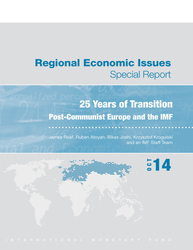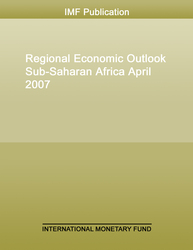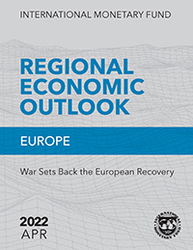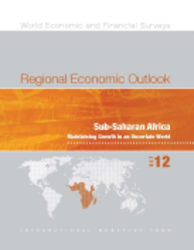
Regional Economic Issues--Special Report 25 Years of Transition: Post-Communist Europe and the IMF
Volume/Issue:
Volume 2014
Issue 004
Publication date: October 2014
ISBN: 9781498305631
$20.00
Add to Cart by clicking price of the language and format you'd like to purchase
Available Languages and Formats
| English |
Prices in red indicate formats that are not yet available but are forthcoming.
Topics covered in this book
This title contains information about the following subjects.
Click on a subject if you would like to see other titles with the same subjects.
Banks and Banking , Exports and Imports , Labor , Economics- Macroeconomics , Public Finance , REO , country , transition country , economy , financing , labor market , CIS country , euro zone crisis , CEE country , Russia crisis , Labor markets , Exchange rates , Global , Western Europe , Europe , Baltics , Asia and Pacific
Summary
The past 25 years have seen a dramatic transformation in Europe’s former communist countries, resulting in their reintegration with the global economy, and, in most cases, major improvements in living standards. But the task of building full market economies has been difficult and protracted. Liberalization of trade and prices came quickly, but institutional reforms—such as governance reform, competition policy, privatization and enterprise restructuring—often faced opposition from vested interests. The results of the first years of transition were uneven. All countries suffered high inflation and major recessions as prices were freed and old economic linkages broke down. But the scale of output losses and the time taken for growth to return and inflation to be brought under control varied widely. Initial conditions and external factors played a role, but policies were critical too. Countries that undertook more front-loaded and bold reforms were rewarded with faster recovery and income convergence. Others were more vulnerable to the crises that swept the region in the wake of the 1997 Asia crisis.
Copyright © 2010 - 2026
Powered by:
AIDC



